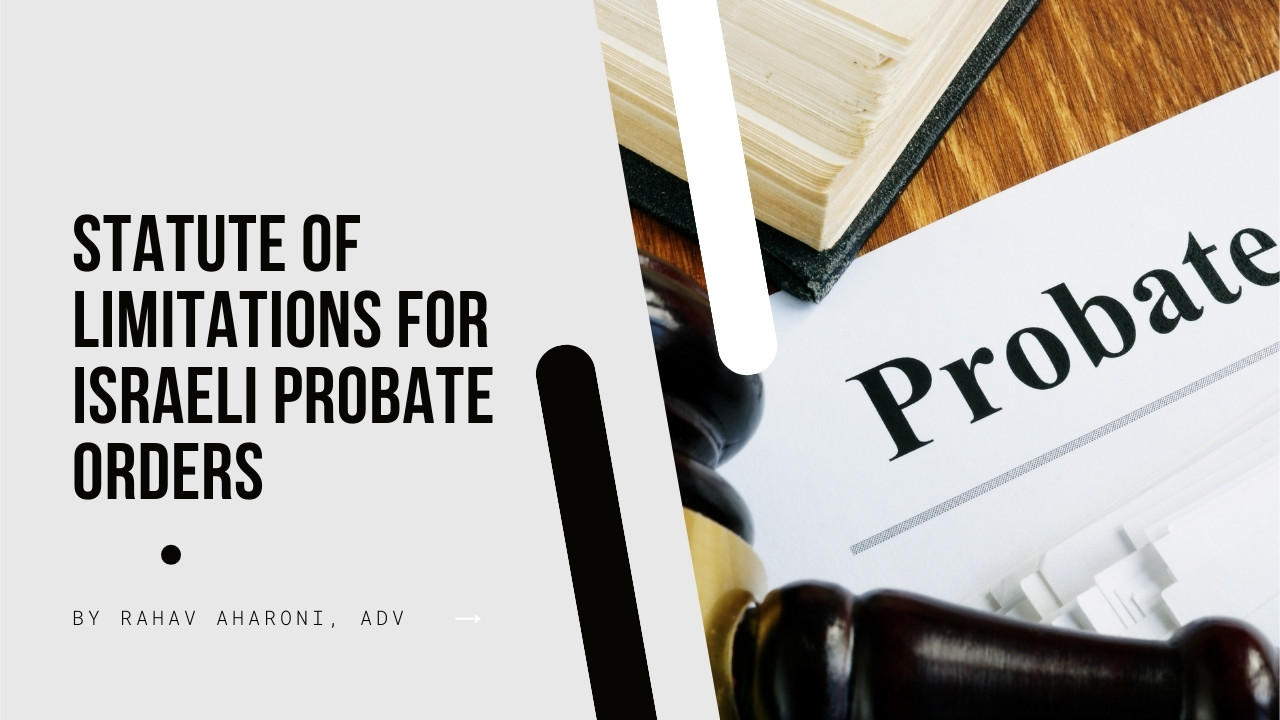Let’s Consider A Case Study.
Two siblings inherited property in my hometown Rehovot, Israel. Their father z”l passed away in Florida in the late 1980s with a will and the will was executed and finalized by a probate court order in Israel.
The attorney handling the case dropped the ball and the heirs’ names were not recorded on the title deed aka Tabu the land registry and settlement of rights. The question of the clients was whether the decree was still valid after 25 years or not (Judgments in Israel are not valid after 25 years).
The Answer:
The decree from the ‘80s is valid because it is a declaration decree and therefore not void.
The statute of limitations is a legal concept that refers to the amount of time an individual has to bring a legal claim. In Israel, the statute of limitations for real estate law and probate law is governed by the Israeli Limitation Law of 1958. This law establishes a framework for how long a person has to bring legal action in both these areas of law.
In Israeli probate law, the statute of limitations is also an important concept. When a person passes away, their property and assets are usually distributed according to their will or, if they do not have a will, according to the law of intestacy.
Does An Inheritance Order Expire?
The supreme court in Israel decided about this matter in Razabi vs. Razabi as illustrated below:
Does a Probate Order Expire?
In RCA v. RCA (CA 74/53, 9 PD 521, 526-525), Justice Cheshin ruled:
(1) Between heirs themselves, there is no statute of limitations unless there is a contradictory presumption.
Section 21 of the Statute of Limitations distinguishes between a judgment that requires enforcement and a judgment that, according to its content, does not require enforcement. A judgment that requires enforcement becomes statute-barred after 25 years from the date it was issued. A judgment that does not require enforcement is not subject to a statute of limitations.
It is a basic principle that a probate order is not constitutive but only declaratory.
Estate Tax Director v. Gottlieb (CA 171/54, 9 PD 347, 350), Perlman Estate v. Capital Gains Tax Director (CA 509/77, 32(1) PD 562), Reizman v. Woszczin (CA 513/82, 37(2) PD 813, 819, 824).
Under Section 1 of the Inheritance Law, an estate asset passes to the heirs from the time of the testator’s death, not from the time of the grant of the probate order or from the time of the distribution of the estate. A probate order is only a formal declaration of the material right that exists from the day of the testator’s death.
Terms to Know:
- The term “צו ירושה” (pronounced “tsav yerusha”) is translated as “probate order”.
- The term “מוריש” (pronounced “morish”) is translated as “testator”.
- The term “עזבון” (pronounced “azavon”) is translated as “estate”.
- The term “יורשים” (pronounced “yor’shim”) is translated as “heirs”.
Call us at 888-923-0022 (United States) or 972-3-9055478 (Israel), or contact us online to schedule a free personalized consultation.



